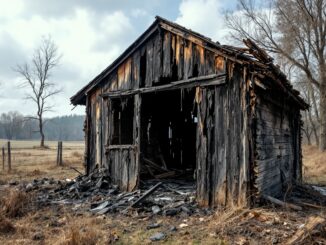Local accommodation providers express worries about the impact of a 5% tourist tax.

Topics covered
In a significant gathering at Eden Court in Inverness, numerous owners, directors, and managers of accommodation providers in the Highlands expressed their strong opposition to the proposed implementation of a visitor levy. This proposal, which is part of a public consultation launched by the Highland Council in November, aims to introduce a 5% tax on overnight stays, with the revenue intended for local infrastructure and facilities.
Understanding the visitor levy proposal
The Visitor Levy (Scotland) Act 2024 grants local authorities the power to impose a visitor tax, similar to systems in various European cities. The Highland Council’s plan, if approved, could see the levy enforced by winter 2026, following a mandatory 18-month period after the council’s decision.
While many in the tourism sector do not oppose the concept of a visitor levy, they have raised significant concerns regarding the current proposal’s structure and implications.
Concerns raised by accommodation providers
During the meeting, led by Colin Marr, chief executive of the Inverness Chamber of Commerce, and Craig Ewan, operations director at Kingsmills Hotel, attendees voiced their apprehensions. Key issues highlighted included the levy being perceived as a “money grab” rather than a sustainable solution for the tourism industry. Marr emphasized that the levy could harm businesses, particularly smaller operators, by pushing them over the VAT threshold due to the tax being considered part of business turnover.
“It’s very unusual for us to publicly oppose the council, but we believe the levy proposal is fundamentally flawed,” Marr stated. He pointed out that successful visitor taxes in Europe typically utilize a flat fee rather than a percentage, which he believes complicates the financial burden on businesses.
The impact on local tourism and businesses
Craig Ewan echoed these sentiments, expressing concerns about the fragility of the tourism industry in the Highlands, especially given the rising operational costs and declining tourist numbers. He argued that the proposed 5% charge could lead to the closure of many accommodation providers, particularly small B&Bs and guesthouses that may struggle to absorb the additional costs.
“If a visitor levy is done properly, it should be an affordable small, fixed fee,” Ewan suggested, advocating for a clearer communication of the tax to customers. He also raised concerns about the financial implications of implementing new software systems to manage the varying rates, estimating costs upwards of £7,500 for compliance.
Call for a reconsideration of the proposal
As the consultation period continues until March 31, local business leaders are urging the Highland Council to reconsider the structure of the proposed levy. They argue that a flat fee would not only simplify the process for businesses but also enhance transparency for visitors. The ongoing discussions reflect a broader concern about the sustainability of the tourism sector in the Highlands and the need for a balanced approach that supports both local communities and the industry.





Leave a Reply